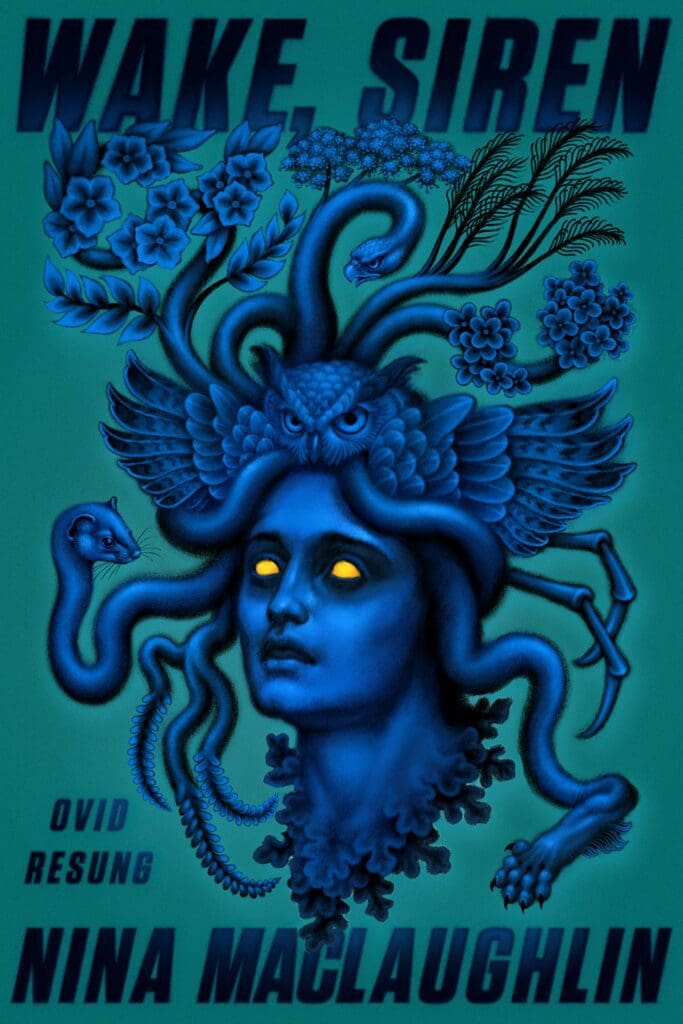
Shelby Hinte, Intern: I’m not usually a nostalgic person, but maybe it was turning 30 this year or the simple fact that nearly every facet of normal life was rendered unstable by the pandemic, but this summer I’ve been longing for the past—at least musically. Early in 2020 a longtime favorite band of mine, Best Coast, released their new album Always Tomorrow. It came out a few weeks before shelter-in-place orders were announced and so I didn’t catch word of it until a year later. It has since become one of the most played albums on my Spotify, second only to their first album, Crazy For You (2010).
I was 19 when Best Coast released their debut album. At the time, it was summer break after my first year in art school and I was working two jobs to pay rent for a room in a North Oakland duplex where I slept on a pile of blankets in a moldy room with no sunlight. My days were comprised of serving coffee at a Rockridge café, hostessing at an overpriced restaurant, and getting stoned before long bike rides along the Bay. In the evenings, I drank jugs of Carlo Rossi with my roommate or worked in a warehouse with my painter friend writing bad poetry and posing for her portraits. It was a dream, and Crazy For You, with tracks like “Summer Mood” and “Happy,” became the Californian lo-fi, surf-rock-inspired soundtrack of the summer. It eventually grew into the soundtrack of my early adulthood.
The album is moody and full of lust and hormones. Bethany Cosentino’s voice is sweet, a little whiney, and feels ripe with millennial neuroses. The album’s lyrics, like those in “Boyfriend,”
I wish he was my boyfriend
I’d love him to the very end but instead he’s just a friend
I wish he was my boyfriendThe other girl is not like me
She’s prettier and skinnier
She has a college degree
I dropped out when I was seventeen
If only I could get her out of the picture
Then he would know how much I want him
made me feel less alone in my angsty and yearning teenage ways. As an aspiring poet (I’ve since broken up with poetry), they were also the type of lyrics that gave me permission to practice a type of honesty in my writing that I hadn’t ever considered—there was nothing epic or metaphorical about them, rather they were perfect in their earnestness, embarrassing even, and I found them totally relatable. It felt like the antithesis of so much of the disaffected irony of the times. The album is about romance and desire. It’s about being a brat, a stoner, a lover, a loser, and ultimately a person just trying to get by.
Best Coast’s 2020 album, Always Tomorrow, is my favorite since their debut. Cosentino’s voice has more clarity in this album and the lyrics are a bit more grown up though still seeped in lust and a desire to be independent. In a way, I feel the album portrays a similar growth to my own life. The album’s track “Everything Has Changed,” opens with the verse “I used to drink/Nothing but water and whiskey/Now I think/Those were the reasons why/I used to fall/Deep down in a hole.”
The album as a whole seems concerned with exploring the many ways people outgrow themselves or try and fail to overcome certain ways of thinking. Like Crazy For You, the album is still romantic and earnest, but the lyrics also imply a certain self-awareness and sobriety that feels compelling, vulnerable, and mature. Traces of the lo-fi vibe are still there, though not as D.I.Y. The sound is a little more pop than rock, but for all the nostalgia I might have for Best Coast’s earlier music, I’m grateful for an album that has provided the end of my twenties with an updated soundtrack and made growing up a little more bearable.

Supriya Saxena, Intern: After reading a translation of Ovid’s Metamorphoses for the first time, I was left longing for a retelling of Ovid’s stories that did right by its female characters. Metamorphoses is a beautiful, thought-provoking narrative poem, and most of the women featured in it are raped, cursed, transformed into monsters, or otherwise punished. In Wake, Siren: Ovid Resung, Nina MacLaughlin takes on the task of retelling the stories from Metamorphoses from the perspectives of the female characters. The result is a brilliant, bold, and powerful collection of short stories that reveals both a deep love for Ovid’s work and an unfailing compassion for the women who are tossed aside in his stories.
Ancient Greek mythology continues to captivate writers and inspire retellings and reinterpretations. Because the misogynistic violence in these stories is considered disturbing by the standards of contemporary society, many writers opt to gloss over or completely ignore that aspect of the stories in their retellings. MacLaughlin does not do this. Rather, she keeps misogynistic violence at the center of her versions of the stories. But unlike Ovid, MacLaughlin allows her female characters to voice the rage, bitterness, contempt, and hatred they feel for the men and gods who have inflicted violence upon them. As a result, Wake, Siren is gripping and cathartic to read.
Though the short stories vary in style and tone, all are creatively and expertly written. MacLaughlin’s prose is vivid and captivating, and I found that many of her stories lingered in my mind after I finished the book. Her versatility as a writer is one of her strongest points, on full display in this collection: she can be flowery or succinct, witty or solemn, heartwarming or devastating. Some stories she sets in ancient Greece, while others she sets in more modern times, featuring therapy appointments and nightclubs. Every story is centered around a particular female character from Metamorphoses, and it is a feat that MacLaughlin manages to give each of these central characters a distinct voice and personality that sets them apart from the others, given that there are 34 stories total. Her skill in expressing the varying perspectives of these women permits her to humanize them in a way Ovid never did.
Due to the heavy subject matter, Wake, Siren can be an emotionally exhausting read. I definitely would not recommend reading the whole book in one sitting. However, the book is also cathartic and satisfying, particularly if you harbor a love for Ovid’s stories yet seek justice for the women unfairly punished in them. From Scylla to Eurydice, from Daphne to Pomona, these stories offer a unique and compassionate take on the women of Metamorphoses.

Peter Schlachte, Intern: In 2018, when Gia Margaret opened her debut album, There’s Always Glimmer, by singing, “It’s safe to say it’s been a hard year,” she meant it personally. It just so happened to be a little prophetic for the rest us of too. Over the ensuing thirty-four minutes of her debut, Margaret did what her album’s title suggested—she documented the moments of light piercing through her melancholy. There’s Always Glimmer was the soundtrack to my early pandemic days, its languid, wistful texture matching my mood.
If you’ve ever deeply associated an album with a place, a time, a mood, you’ll understand my wariness when I discovered in June of 2020 that Margaret had just released her sophomore album, Mia Gargaret. I resigned myself to the fact that it couldn’t meet my impossibly high expectations, especially when I learned that the album marked a departure from its predecessor: due to an illness that impacted Margaret’s voice, Mia Gargaret is an ambient, almost entirely instrumental, record. I’d been so drawn to Margaret’s lyrics on her first album—what would her music be without them?
The answer is something shapeless and warm, synths fading into synths fading into piano and acoustic guitar, and a smattering of spoken word samples. The music is tranquil, and Margaret’s choice of samples—from the philosopher Alan Watts to recorded snippets of her vocal therapy—are grounding and hopeful. In short, Mia Gargaret is excellent. It was exactly the music I needed to comfort me as the pandemic stretched into the fall and then blew past the new year with little sign of slowing down. Now, with Delta cases on the rise, I’ve found myself coming back to Mia Gargaret again. Margaret, when introducing the album on her Bandcamp, expressed how soothing, how therapeutic the process of creating the album was. I hope she knows that it’s just as soothing for her listeners too.

Zack Ravas, Editorial Assistant: No doubt the pandemic is the culprit, but it’s been a somewhat uninspiring year for new music releases. More often than not, I’ve found myself listening to my favorite albums from decades past, poking nostalgia like a sore tooth since just about any era has got to be better than here. I’ve admittedly been seeking out the comforting and the familiar…which is perhaps why I found myself so gobsmacked by the latest LP from Montreal-based dream pop act Men I Trust, an album that reinterprets the familiar in a way that evokes something new.
Untourable Album has a warm, intimate sound, delivered with the kind of obsessive audio fidelity one typically associates with bands from the Seventies, as each instrument is afforded space to breathe in the mix. On tracks like “Oh Dove” and (my personal favorite) “Sorbitol,” lead singer Emmanuelle Proulx’s voice feels as though it’s curled itself in your ear. She has a pleasing vocal tone reminiscent of Isobel Campbell (The Gentle Waves), set against lush synths, pulsing drums, and bass grooves for a retro atmosphere. And yet Men I Trust never sound forced or overly derivative of their influences. There is, in the languid melody and layered vocals of dreamy songs like “Tree Among Shrubs,” a sound that stands out in the 2021 music landscape.
When I think of the albums I cherish the most, they’re the albums that provide a sense of cohesion from track to track. Untourable Album is one of those records that creates a world unto itself for the duration of the listening experience. It evokes a particular mood, one that’s also perfectly expressed by Men I Trust’s album art, which appears to freeze a moment during a childhood vacation—albeit a vacation that’s decidedly gloomy and rained on, perhaps closer to Stanley Kubrick’s The Shining than a family romp at Disney World. And yet the shining faces of the children in the photo attest to the fact that there are times in our lives when we are too young to realize we’ve been all rained out. In our exuberance, we simply don’t want the vacation to end, which is something like how I feel about Men I Trust’s Untourable Album.
